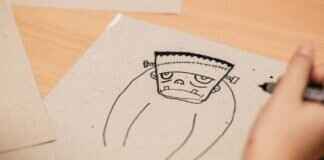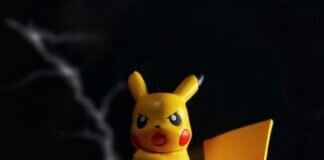This article provides comprehensive insights into effective methods for preventing tarnishing in jewelry, ensuring it retains its shine and beauty for years to come.
Tarnishing occurs due to chemical reactions between metal and environmental factors. Key contributors include:
- Moisture: Humidity can accelerate tarnishing.
- Air Exposure: Oxygen reacts with metals, leading to discoloration.
- Skin Acidity: The pH level of your skin can also affect how quickly jewelry tarnishes.
- Chemicals: Everyday products like lotions, perfumes, and cleaning agents can contribute to tarnishing.
Proper storage is crucial in preventing tarnish. Follow these best practices:
- Use Anti-Tarnish Pouches: These special pouches are designed to absorb moisture and prevent tarnishing.
- Separate Storage: Store different types of jewelry separately to avoid scratches and reactions between metals.
- Use Soft Cloths: Wrap jewelry in soft cloths to minimize exposure to air.
Regular cleaning is essential for maintaining the shine of your jewelry. Here are effective methods:
- Gentle Soap and Water: Use mild soap and a soft brush to clean your jewelry.
- Polishing Cloths: Invest in a jewelry polishing cloth to remove tarnish without scratching.
- Vinegar and Baking Soda: A natural solution for cleaning tarnished silver. Mix and apply gently.
Understanding which materials tarnish more easily can help you tailor your care:
- Silver Jewelry: Particularly susceptible, requiring regular care and cleaning.
- Gold-Plated Jewelry: Needs special attention to maintain its finish.
- Costume Jewelry: Often made from cheaper metals that tarnish quickly.
Applying protective coatings can effectively prevent tarnish. Consider these options:
- Clear Nail Polish: A simple DIY solution that can create a barrier against tarnishing.
- Commercial Anti-Tarnish Sprays: Specifically formulated products that can provide long-lasting protection.
Sometimes, professional cleaning and maintenance are necessary. Look for these signs:
- Severe Tarnishing: If you notice dark spots or discoloration that cannot be cleaned at home.
- Restoration Needs: When your jewelry requires more than just cleaning, such as repairs or refurbishing.
For those who wear jewelry daily, here are practical tips:
- Avoiding Chemicals: Keep your jewelry away from harsh chemicals found in cleaning products and personal care items.
- Regular Inspections: Check your jewelry frequently for signs of tarnish or damage to catch issues early.
- Remove Before Activities: Take off your jewelry before exercising, swimming, or applying lotions.
By following these expert tips and understanding the causes of tarnishing, you can ensure your jewelry remains beautiful and shiny for years to come.

What Causes Jewelry to Tarnish?
Tarnishing is a common issue that affects many types of jewelry, leading to a dull and unattractive appearance. To effectively combat this problem, it is essential to understand the underlying causes. This knowledge not only helps in preventing tarnishing but also extends the life of your cherished pieces.
Tarnishing occurs due to a series of chemical reactions that take place when jewelry is exposed to certain environmental factors. The primary culprits include:
- Moisture: High humidity levels can accelerate tarnishing, especially in metals like silver. When moisture interacts with the metal, it can lead to the formation of tarnish.
- Air Exposure: Oxygen in the air is another significant factor. When jewelry is exposed to air, it can react with the metal, resulting in tarnishing over time.
- Pollutants: Chemicals found in everyday products, such as perfumes, lotions, and cleaning agents, can contribute to tarnishing. These substances can leave residues that react with the metal.
- Specific Metals: Certain metals, such as silver and copper, are more prone to tarnishing. Silver, for instance, reacts with sulfur compounds found in the air, leading to a black tarnish.
Understanding these factors allows jewelry owners to take proactive measures to prevent tarnishing. For instance, storing jewelry in a dry, cool place can significantly reduce moisture exposure.
Oxidation is a primary chemical process responsible for tarnishing. When metals like silver and copper react with oxygen, they form oxides that manifest as tarnish. This is particularly evident in silver jewelry, which can develop a dark layer over time. By minimizing exposure to air and moisture, you can slow down the oxidation process.
The pH level of the environment where jewelry is stored also plays a crucial role in tarnishing. Acidic conditions can accelerate the tarnishing process. For example, storing jewelry in a bathroom, where humidity and acidity from personal care products are high, can lead to faster deterioration. It is advisable to store jewelry in neutral pH environments, away from harsh chemicals.
Temperature fluctuations can also influence tarnishing. Higher temperatures can increase the rate of chemical reactions, leading to faster tarnishing. Therefore, keeping your jewelry in a stable, cool environment can help maintain its shine.
Different jewelry types exhibit varying levels of susceptibility to tarnishing. Silver jewelry is particularly vulnerable due to its high reactivity with sulfur and oxygen. Gold-plated items may also tarnish over time, especially if the base metal is prone to oxidation. By identifying which pieces are most susceptible, you can implement targeted care strategies.
In summary, understanding the chemical reactions that lead to tarnishing is vital for jewelry maintenance. By recognizing the impact of moisture, air exposure, specific metals, oxidation, pH levels, and temperature, you can take effective steps to protect your jewelry. Regular care and mindful storage practices will help keep your pieces looking beautiful for years to come.
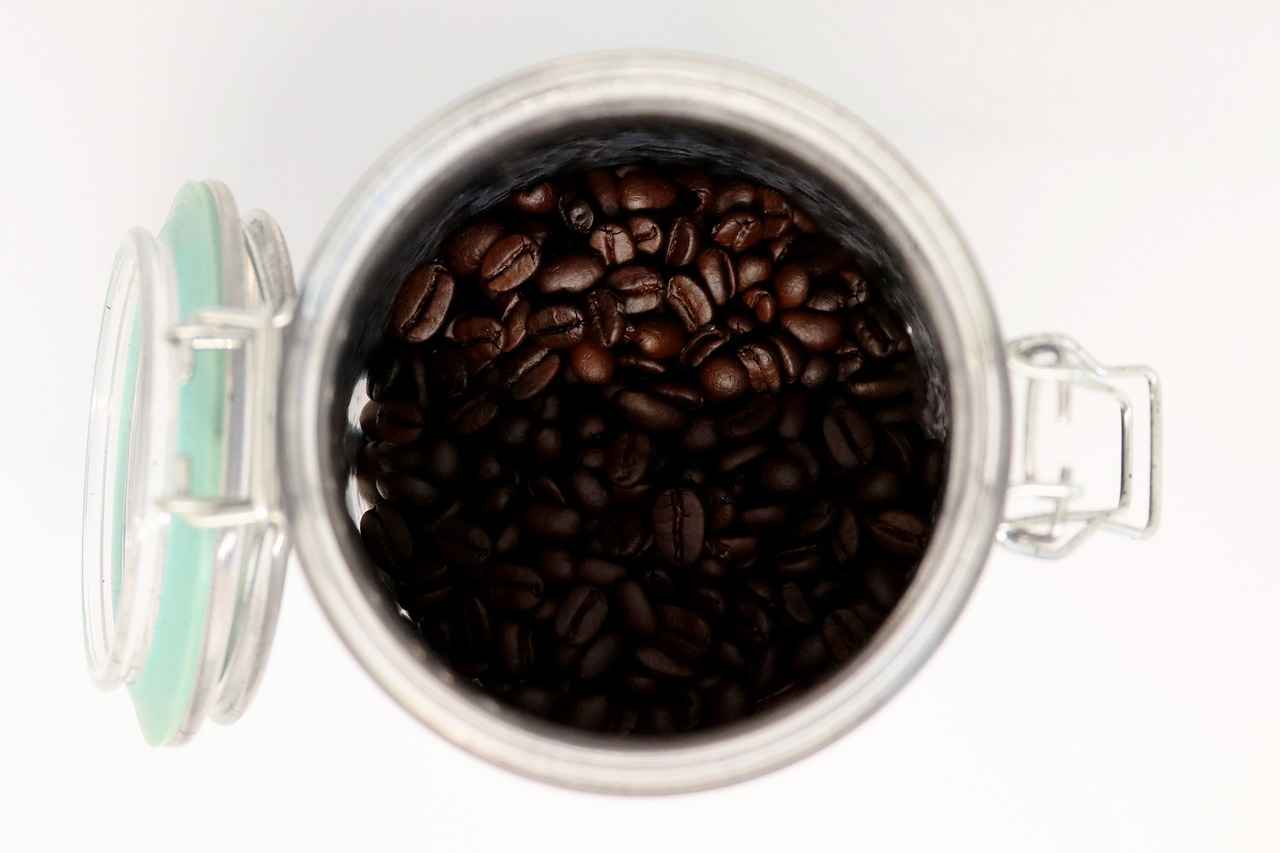
How to Store Jewelry Properly?
Proper jewelry storage is essential for maintaining the beauty and longevity of your pieces. By understanding how to store your jewelry correctly, you can significantly reduce the risk of tarnishing and damage. Here, we explore the best practices for storing different types of jewelry, ensuring they remain in pristine condition.
Jewelry is often exposed to various elements that can lead to tarnishing, such as moisture, air, and pollutants. Proper storage minimizes exposure to these factors, preserving the shine and integrity of your jewelry.
- Store in a Dry Environment: Always keep your jewelry in a cool, dry place. Humidity can accelerate tarnishing, particularly for metals like silver.
- Use Individual Pouches or Boxes: To prevent scratches and tangling, store each piece in its own anti-tarnish pouch or a soft-lined jewelry box. This practice is especially important for delicate items.
- Avoid Direct Sunlight: Prolonged exposure to sunlight can fade gemstones and cause metals to tarnish. Store your jewelry away from windows or areas with direct light.
- Keep Away from Chemicals: Store your jewelry away from cleaning supplies, perfumes, and lotions. These substances can cause tarnishing and damage.
Investing in anti-tarnish pouches or cloths can provide an added layer of protection. These products are designed to absorb moisture and prevent tarnish from forming on your jewelry.
Organization plays a crucial role in jewelry care. Consider the following tips:
- Use Dividers: If using a jewelry box, opt for one with compartments to keep pieces separated.
- Label Your Storage: For larger collections, labeling can help you quickly find specific pieces without rummaging through everything.
Temperature fluctuations can also affect jewelry. Store your jewelry in a stable environment, ideally between 60°F and 75°F. Avoid areas like attics or basements where temperature and humidity can vary significantly.
In addition to proper storage, regular maintenance is vital. Check your jewelry periodically for signs of tarnishing or damage. A gentle cleaning with a soft cloth can help maintain its luster.
- Silver Jewelry: Silver is highly susceptible to tarnishing. Use anti-tarnish strips in storage and clean regularly with a silver polishing cloth.
- Gold Jewelry: While gold is less prone to tarnishing, it can still dull over time. Store it in a soft cloth or pouch to prevent scratches.
- Costume Jewelry: This type often contains materials that can tarnish easily. Keep it in a cool, dry place and avoid exposure to moisture.
By following these storage practices, you can effectively minimize tarnishing and maintain the beauty of your jewelry for years to come. Remember, proper care and storage are the keys to preserving your cherished pieces.
Use Anti-Tarnish Pouches
When it comes to preserving the beauty of your jewelry, anti-tarnish pouches are a game-changer. These specially designed pouches can significantly reduce tarnishing, ensuring that your precious pieces maintain their shine and luster over time. But how exactly do these pouches work, and where can you find them for your jewelry collection?
Anti-tarnish pouches are typically made from materials that absorb moisture and prevent the exposure of your jewelry to air, which is one of the primary causes of tarnishing. These pouches often contain anti-tarnish agents that actively neutralize the chemical reactions that lead to tarnishing, especially in metals like silver and copper.
- Moisture Absorption: The pouches help to keep humidity at bay, which is crucial since moisture can accelerate tarnishing.
- Air Filtration: By limiting the exposure of jewelry to air, these pouches minimize the chances of oxidation.
- Odor Prevention: Some pouches also help to keep your jewelry free from unpleasant odors that can develop over time.
You can easily find anti-tarnish pouches at various retailers, both online and in physical stores. Here are some popular options:
- Jewelry Supply Stores: Many stores that specialize in jewelry supplies offer a range of anti-tarnish pouches.
- Online Marketplaces: Websites like Amazon and eBay feature numerous brands and types of anti-tarnish pouches, making it easy to compare options.
- Craft Stores: Stores that cater to crafting enthusiasts often carry these pouches, especially those that deal with jewelry making.
Not all anti-tarnish pouches are created equal. When selecting one for your jewelry collection, consider the following:
- Material Quality: Look for pouches made from high-quality, breathable materials that are designed specifically for jewelry storage.
- Size: Ensure the pouch is appropriately sized for your jewelry pieces, whether they are rings, necklaces, or bracelets.
- Longevity: Check the lifespan of the anti-tarnish properties; some pouches need to be replaced after a certain period.
To maximize the effectiveness of anti-tarnish pouches, follow these tips:
- Keep Jewelry Clean: Before placing jewelry in a pouch, ensure it is clean and dry to prevent any existing tarnish from spreading.
- Avoid Overcrowding: Do not stuff too many pieces into one pouch, as this can reduce airflow and effectiveness.
- Store in a Cool, Dry Place: Even with pouches, storing your jewelry in a cool, dry location will enhance protection against tarnishing.
In conclusion, anti-tarnish pouches are a simple yet effective solution for anyone looking to protect their jewelry from tarnishing. By understanding how they work, where to find them, and how to use them effectively, you can ensure your jewelry remains as stunning as the day you bought it.
Choosing the Right Material
When it comes to preserving the beauty of your jewelry, understanding the various anti-tarnish materials available is crucial. Not all materials are equally effective, and their performance can vary significantly based on their composition and intended use. This section delves into the different materials that can help prevent tarnish and how they work.
- Anti-Tarnish Cloths: These specialized cloths are treated with anti-tarnish agents. They are designed to wipe away tarnish while providing a protective layer. Regular use can significantly extend the life of your jewelry.
- Silica Gel Packs: Often found in packaging, silica gel absorbs moisture, which is a key contributor to tarnishing. Placing these packs in your jewelry box can help maintain a dry environment.
- Anti-Tarnish Pouches: These pouches are lined with materials that actively prevent tarnishing. They are particularly useful for storing silver and other susceptible metals, as they create a barrier against tarnish-causing elements.
- Storage Boxes with Anti-Tarnish Linings: Some jewelry boxes come with built-in anti-tarnish linings. These provide a convenient way to store your pieces without worrying about tarnishing.
- Coated Jewelry: Some manufacturers offer jewelry that is coated with a protective layer, such as rhodium plating. This layer can help prevent exposure to air and moisture, significantly reducing the likelihood of tarnishing.
Each of these materials has its own strengths and weaknesses. For example, while anti-tarnish cloths are excellent for immediate use, they may not provide long-term protection. On the other hand, silica gel packs are great for moisture control but need to be replaced periodically to remain effective.
When selecting anti-tarnish solutions, consider the type of jewelry you own and its specific needs. For instance, silver jewelry is particularly prone to tarnish and may benefit most from dedicated anti-tarnish pouches or cloths. In contrast, gold jewelry, especially gold-plated items, may require less stringent measures but can still benefit from moisture control.
In addition to choosing the right materials, it’s essential to combine these solutions with proper storage techniques. For example, placing your jewelry in a cool, dry location away from direct sunlight can enhance the effectiveness of any anti-tarnish measures you employ.
Ultimately, the right choice of anti-tarnish materials can make a significant difference in the longevity and appearance of your jewelry. By understanding the options available and how they function, you can make informed decisions that keep your pieces looking their best for years to come.
Placement in Storage
is a crucial factor in preserving the integrity of your jewelry. The way you store your pieces can significantly influence their tendency to tarnish, which is a common concern for many jewelry owners. By understanding the best practices for jewelry storage, you can ensure that your beloved items remain in pristine condition for years to come.
One of the primary causes of tarnishing is exposure to moisture and air. Therefore, choosing the right location for your jewelry is essential. Here are some expert tips on how to store your jewelry effectively:
- Keep Jewelry in a Dry Environment: Humidity can accelerate tarnishing. Store your jewelry in a cool, dry place away from direct sunlight and moisture. A dedicated jewelry box or drawer is ideal.
- Avoid Storing in the Bathroom: Bathrooms are often humid due to showers and baths. Instead, opt for a different room with better air circulation.
- Use Anti-Tarnish Materials: Consider using anti-tarnish pouches or cloths. These materials contain special chemicals that absorb moisture and prevent tarnishing. Placing your jewelry in these pouches can significantly prolong its shine.
- Separate Different Types of Jewelry: Storing different types of jewelry together can lead to scratches and tarnishing. Use dividers or individual compartments within your jewelry box to keep pieces separated.
- Consider Temperature: Extreme temperatures can affect your jewelry. Avoid places that experience significant temperature fluctuations, such as attics or basements.
Additionally, the material of your jewelry plays a role in how you should store it. For instance, silver jewelry is particularly prone to tarnishing, so it may require more careful storage compared to gold or platinum pieces. Always check the specific care instructions for each type of metal.
Another effective method is to store jewelry in a sealed container with silica gel packets. These packets absorb moisture and help maintain a dry environment inside the container. This is especially beneficial for those living in humid climates.
Lastly, regular inspections of your jewelry can help you catch any early signs of tarnishing. If you notice any discoloration, it may be time to clean your pieces or reconsider your storage methods. By following these tips, you can effectively minimize tarnishing and keep your jewelry looking its best.
What Cleaning Methods Help Prevent Tarnish?
Jewelry is not just an accessory; it is often a cherished possession that holds sentimental value. To ensure that your pieces remain as stunning as the day you received them, regular cleaning is essential. This practice not only helps maintain the shine of your jewelry but also prevents tarnishing, which can dull its appearance over time. In this section, we will explore effective cleaning methods that safeguard your jewelry without causing damage.
Jewelry is exposed to various elements daily, such as skin oils, cosmetics, and environmental pollutants. These substances can accumulate on your jewelry, leading to tarnishing and diminishing its luster. Regular cleaning removes these residues, helping to maintain the piece’s original beauty.
When it comes to cleaning your jewelry, it’s crucial to use gentle solutions that won’t harm the materials. Here are some effective methods:
- Warm Soapy Water: Mix a few drops of mild dish soap with warm water. Soak your jewelry for a few minutes and gently scrub with a soft toothbrush to remove dirt.
- Baking Soda Paste: Create a paste using baking soda and water. Apply it to tarnished areas and gently rub with a soft cloth. Rinse thoroughly and dry.
- Vinegar and Water: For silver jewelry, a mixture of equal parts vinegar and water can effectively remove tarnish. Soak for 2-3 hours and rinse well.
Using the right tools can make a significant difference in your cleaning routine:
- Soft Cloths: Use microfiber or cotton cloths to avoid scratching the surface of your jewelry.
- Soft Brushes: A soft-bristled toothbrush is perfect for getting into crevices without causing damage.
- Jewelry Cleaning Kits: Consider investing in a jewelry cleaning kit that includes safe cleaning solutions and tools tailored for specific materials.
To keep your jewelry in top condition, it’s recommended to clean your pieces at least once a month. However, if you wear them daily or they come into contact with lotions and perfumes, you may need to clean them more frequently. Regular inspections can help you identify any tarnishing early on, allowing for timely cleaning.
If your jewelry has significant tarnishing or requires specialized care, consider seeking professional cleaning services. Jewelers have access to advanced cleaning techniques and solutions that can restore your jewelry without risking damage.
Incorporating these cleaning methods into your jewelry care routine will not only help prevent tarnishing but also keep your pieces looking radiant. By being proactive in your maintenance, you can enjoy your jewelry for many years to come.

Which Jewelry Types are Most Prone to Tarnishing?
Understanding which types of jewelry are most prone to tarnishing is essential for maintaining their beauty and longevity. Different materials react uniquely to environmental factors, leading to varying degrees of tarnish. Below, we explore the most affected types of jewelry and provide specific care tips to keep them looking their best.
The susceptibility of jewelry to tarnish largely depends on the metals used in their composition. For instance, metals like silver, copper, and certain alloys are more reactive to moisture and air, leading to tarnishing. In contrast, high-quality gold and platinum are less likely to tarnish due to their inert properties.
- Silver Jewelry: Silver is notorious for tarnishing, especially when exposed to sulfur compounds found in the air and certain foods. To care for silver jewelry, store it in anti-tarnish pouches and clean it regularly with a soft cloth.
- Copper Jewelry: Copper can develop a green patina, known as verdigris, when oxidized. To prevent this, keep copper jewelry dry and apply a thin layer of clear nail polish to create a barrier against moisture.
- Gold-Plated Jewelry: While solid gold is tarnish-resistant, gold-plated items can tarnish over time as the thin layer of gold wears off. Avoid exposing them to water and chemicals, and store them in a cool, dry place.
- Costume Jewelry: Often made from base metals and synthetic materials, costume jewelry is highly susceptible to tarnishing. To protect these pieces, avoid wearing them while swimming or exercising, and clean them gently with a damp cloth.
Proper care can significantly extend the life of your jewelry. Here are some tailored tips:
- Regular Cleaning: Clean tarnished jewelry gently with a soft cloth after each wear to remove oils and dirt.
- Safe Storage: Store jewelry in a dry, dark place. Use anti-tarnish strips or pouches to minimize exposure to air.
- Limit Exposure: Remove jewelry before using lotions, perfumes, or cleaning products to prevent chemical reactions that lead to tarnishing.
Recognizing the early signs of tarnishing can help you take prompt action. Look for discoloration, dullness, or a cloudy appearance on the surface of your jewelry. Regularly inspecting your pieces will help you maintain their shine and beauty.
If your jewelry shows severe signs of tarnish or if you are unsure how to clean it properly, consider consulting a professional jeweler. They can provide expert cleaning services and restoration techniques to revive your treasured pieces.
By understanding which types of jewelry are most prone to tarnishing and implementing these care strategies, you can enjoy your jewelry’s beauty for many years to come. Whether it’s silver, copper, or costume jewelry, taking the right precautions will help you maintain their luster and charm.
Silver Jewelry Care
Silver jewelry is a beautiful addition to any collection, but it is particularly prone to tarnishing. This can be frustrating for wearers who want to keep their pieces looking new and shiny. Understanding how to care for your silver jewelry can make a significant difference in maintaining its luster. Below are some specialized care tips that will help you keep your silver jewelry in excellent condition.
Tarnishing occurs due to a chemical reaction between silver and sulfur compounds in the air, moisture, and other environmental factors. Over time, this reaction leads to the formation of a dull, dark layer on the surface of the silver. To combat this, it’s essential to take proactive steps in caring for your pieces.
- Use a Soft Cloth: Regularly buff your silver jewelry with a soft, lint-free cloth to remove dirt and oils that can contribute to tarnishing.
- Gentle Cleaners: Use a mild soap solution or a specialized silver cleaner. Avoid harsh chemicals that can damage the finish.
- Rinse and Dry: After cleaning, rinse your jewelry with lukewarm water and dry it thoroughly to prevent moisture from causing tarnish.
Proper storage is crucial to prevent tarnishing. Here are some tips:
- Anti-Tarnish Pouches: Store your silver jewelry in anti-tarnish pouches or cloths that absorb moisture and prevent exposure to air.
- Avoid Humidity: Keep your jewelry in a cool, dry place. Consider using silica gel packets in your storage area to absorb excess moisture.
- Separate Storage: Store silver pieces separately from other metals to avoid scratches and chemical reactions that can lead to tarnishing.
Wearing your silver jewelry regularly can actually help keep it tarnish-free. The oils from your skin can create a protective layer on the jewelry. However, be mindful of the following:
- Avoid Chemicals: Remove your jewelry before applying lotions, perfumes, or cleaning products, as these can accelerate tarnishing.
- Limit Exposure to Water: While it’s okay to wear your silver jewelry occasionally in water, frequent exposure can lead to tarnishing.
Sometimes, despite your best efforts, tarnishing can still occur. In such cases, consider seeking professional help. A jeweler can restore your silver pieces to their original shine using specialized techniques and tools.
It’s important to recognize the signs of tarnish early. Look for:
- Dull Appearance: A noticeable loss of shine indicates tarnishing.
- Dark Spots: These are often the first signs of tarnish forming.
By following these specialized care tips, you can keep your silver jewelry looking as stunning as the day you bought it. Remember, prevention is key, and with the right care, your silver pieces can withstand the test of time.
Gold and Gold-Plated Jewelry
Gold jewelry is a cherished accessory that adds elegance and sophistication to any outfit. However, it also requires specific care to maintain its beauty and prevent tarnishing. Understanding the differences in care for solid gold and gold-plated items is essential for preserving their luster.
Solid gold is made entirely of gold, while gold-plated jewelry consists of a base metal coated with a thin layer of gold. This distinction is crucial because it affects how each type reacts to environmental factors. Solid gold is more resistant to tarnishing and corrosion, while gold-plated items are more vulnerable due to their thinner layer of gold.
Solid gold jewelry is relatively easy to care for. Here are some effective tips:
- Regular Cleaning: Use a soft cloth to gently wipe your solid gold pieces after wearing them. This helps remove oils and dirt that can lead to tarnishing.
- Avoid Exposure to Harsh Chemicals: Keep your jewelry away from cleaning products, perfumes, and lotions, as these can cause discoloration over time.
- Store Properly: When not in use, store solid gold jewelry in a soft pouch or a separate compartment in your jewelry box to prevent scratching.
Gold-plated jewelry requires more careful handling to prevent wear and tarnishing:
- Limit Water Exposure: Avoid wearing gold-plated items while swimming or showering, as water can wear away the gold layer.
- Use Gentle Cleaners: Clean gold-plated jewelry with a mild soap solution and a soft cloth. Avoid abrasive materials that can scratch the surface.
- Store Carefully: Just like solid gold, gold-plated jewelry should be stored in a soft pouch or a lined box to minimize exposure to air and moisture.
Proper care is vital for both solid gold and gold-plated jewelry to maintain their appearance. While solid gold can withstand daily wear without significant damage, gold-plated items can lose their shine and color more quickly if not cared for properly. Regular maintenance helps extend the life of your jewelry, keeping it looking beautiful for years to come.
To ensure your jewelry remains in excellent condition, avoid the following:
- Excessive Friction: Avoid wearing your jewelry during activities that may cause it to rub against hard surfaces.
- Heat and Sunlight: Prolonged exposure to heat and direct sunlight can cause gold-plated items to fade.
- Storing with Other Jewelry: Keep your gold jewelry separate from other pieces to prevent scratches and tangling.
By understanding the differences in care for solid gold and gold-plated jewelry, you can take the necessary steps to keep your pieces looking their best. Regular maintenance and mindful storage practices will go a long way in preventing tarnishing and ensuring your jewelry remains a stunning part of your collection.
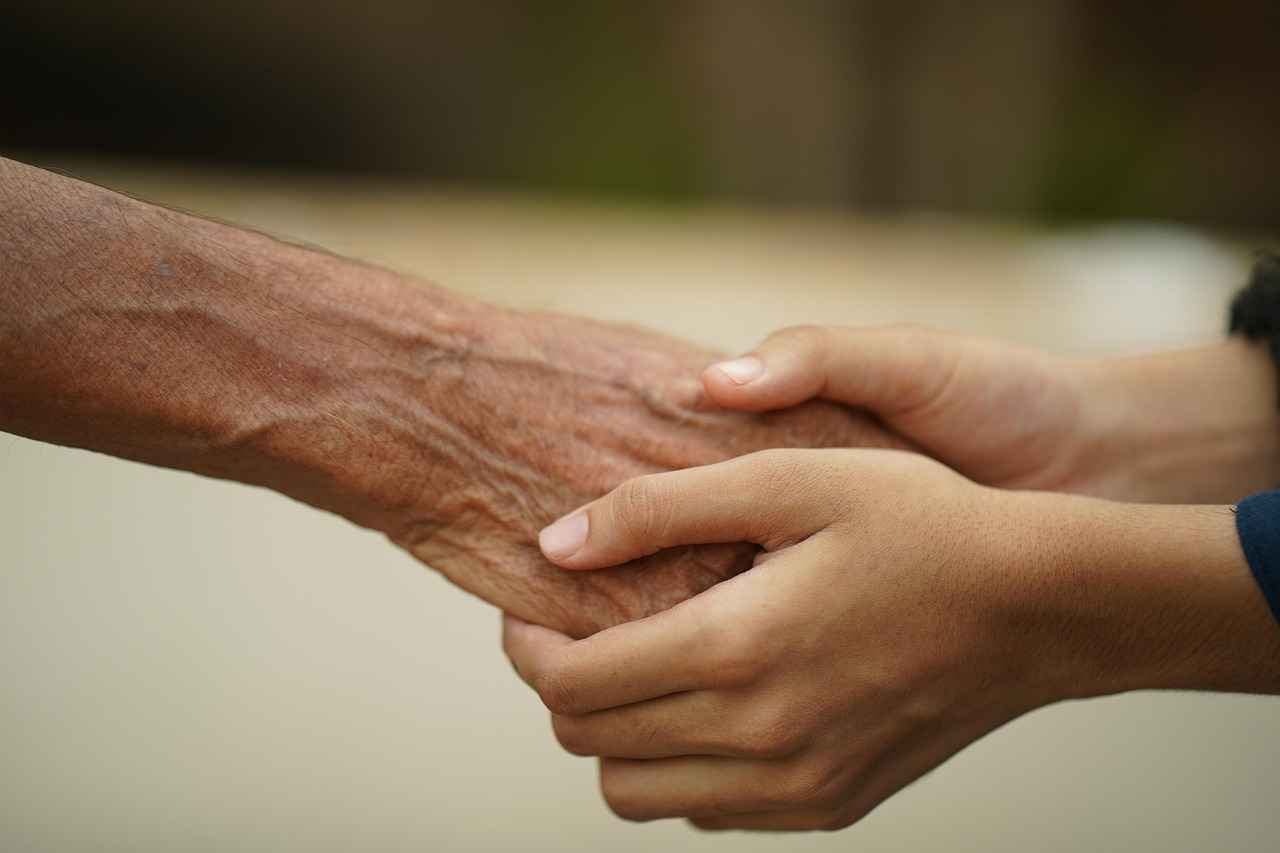
How to Use Protective Coatings?
Protecting your jewelry from tarnish is essential for maintaining its beauty and longevity. One of the most effective methods is the application of protective coatings. In this section, we will explore how to use protective coatings, the various types available, and their application processes.
Protective coatings are specialized substances applied to jewelry surfaces to create a barrier against tarnish and other environmental factors. These coatings can significantly extend the life of your jewelry by preventing oxidation and corrosion.
- Clear Nail Polish: This is a common and accessible option for creating a protective layer. It is easy to apply and can be found in most households.
- Commercial Anti-Tarnish Sprays: These sprays are specifically formulated for jewelry protection. They provide a more durable and effective barrier than nail polish.
- Jewelry Waxes: Some jewelers offer wax coatings that provide a protective layer while enhancing shine.
- Polymer Coatings: These advanced coatings are designed for long-lasting protection and are often used in professional settings.
Applying protective coatings can be straightforward, but following the correct procedures is crucial for effectiveness:
1. **Clean the Jewelry:** Before applying any coating, ensure that the jewelry is clean. Use a gentle soap solution and a soft cloth to remove dirt and oils.2. **Dry Thoroughly:** Make sure the piece is completely dry to allow the coating to adhere properly.3. **Apply the Coating:** - For clear nail polish, use a fine brush to apply a thin and even layer. Avoid excess application, as it can lead to a sticky finish. - For commercial anti-tarnish sprays, hold the canister about 6 inches away and spray lightly over the surface.4. **Let It Cure:** Allow the coating to dry completely before wearing the jewelry. This may take a few hours, depending on the product used.5. **Regular Maintenance:** Reapply coatings as needed, especially for items frequently exposed to moisture or chemicals.
Applying protective coatings provides numerous advantages:
- Prevention of Tarnish: Coatings create a barrier that minimizes exposure to elements that cause tarnishing.
- Enhanced Durability: Jewelry with coatings tends to withstand wear and tear better than untreated pieces.
- Cost-Effective: Protecting your jewelry can save money on professional cleaning and restoration.
While protective coatings are beneficial, there are some considerations:
- Appearance: Some coatings may alter the appearance of the jewelry, making it look less shiny or changing its color.
- Longevity: Coatings may wear off over time, requiring reapplication to maintain effectiveness.
In conclusion, using protective coatings is a viable and effective method for preventing tarnish on your jewelry. By understanding the different types of coatings available and how to apply them properly, you can ensure that your treasured pieces remain beautiful and protected for years to come.
Clear Nail Polish as a Barrier
Clear nail polish is not just for manicures; it can also serve as an effective barrier for your jewelry. This simple yet versatile solution can help protect your precious pieces from tarnishing, scratches, and other forms of damage. In this section, we will delve into how to safely apply clear nail polish to your jewelry while maintaining its aesthetic appeal.
Clear nail polish is a lacquer that dries to form a hard, protective layer. When applied to jewelry, it acts as a shield against moisture and air, two primary culprits in the tarnishing process. By creating this barrier, clear nail polish can help extend the lifespan of your favorite pieces, keeping them looking shiny and new.
Applying clear nail polish to your jewelry requires careful attention to detail to avoid compromising its appearance. Here’s a step-by-step guide:
- Choose the Right Nail Polish: Opt for a high-quality, non-toxic clear nail polish. Look for options that are free from harmful chemicals.
- Clean Your Jewelry: Before application, ensure your jewelry is clean and dry. Use a gentle jewelry cleaner or a soft cloth to remove any dirt or oils.
- Apply a Thin Layer: Using a fine brush or the applicator, apply a thin layer of clear nail polish to the areas you wish to protect. Avoid over-applying, as thick layers can chip easily.
- Let it Dry: Allow the polish to dry completely. This usually takes about 15-30 minutes, depending on the brand.
- Inspect the Finish: Once dry, check for any uneven spots or bubbles. If necessary, apply a second thin layer.
Clear nail polish can be particularly beneficial for:
- Costume Jewelry: Often made from less durable materials, costume jewelry can tarnish quickly. A protective layer helps maintain its appearance.
- Silver Jewelry: Silver is notorious for tarnishing. Applying clear polish can help slow down this process.
- Brass and Copper Pieces: These metals can oxidize and discolor over time. A coat of polish can help prevent this.
While clear nail polish is a great protective measure, there are some considerations. Over time, the polish may chip or peel, requiring reapplication. Additionally, it may not be suitable for all types of jewelry, particularly those with intricate designs or gemstones that can be damaged by the polish.
If you prefer not to use clear nail polish, there are other protective coatings available. Commercial anti-tarnish sprays and protective waxes can also provide a barrier against tarnishing without the potential downsides of nail polish. Always ensure that any product used is suitable for the specific type of jewelry you own.
In conclusion, using clear nail polish as a protective barrier for your jewelry can be an effective and simple method to prevent tarnishing and maintain their beauty. By following the proper application techniques and considering the type of jewelry, you can enjoy your pieces for years to come.
Commercial Anti-Tarnish Sprays
are specifically formulated products designed to protect jewelry from tarnishing, a common issue that affects many metal types, especially silver. These sprays offer a convenient solution for jewelry enthusiasts who want to maintain the luster and beauty of their pieces without extensive maintenance.
- Easy Application: Applying these sprays is straightforward and can be done at home. Simply spray a light coat on the jewelry and allow it to dry.
- Long-Lasting Protection: Many commercial sprays provide a protective barrier that can last for months, reducing the frequency of application needed.
- Versatile Use: These products can be used on various types of jewelry, including necklaces, bracelets, and rings, making them a versatile addition to your jewelry care routine.
- Non-Damaging Formula: Most commercial anti-tarnish sprays are designed to be safe for use on all types of metals, including gold, silver, and platinum, ensuring that they do not harm your jewelry.
To achieve the best results with commercial anti-tarnish sprays, follow these steps:
- Clean Your Jewelry: Before applying the spray, ensure your jewelry is clean. Use a gentle jewelry cleaner to remove any dirt or oils.
- Apply the Spray: Hold the spray about 6-8 inches away from the jewelry and apply a light, even coat. Avoid over-saturation, as this can lead to residue buildup.
- Allow to Dry: Let the jewelry air dry completely before wearing it. This ensures the protective layer forms properly.
- Store Properly: After application, store your jewelry in a cool, dry place to maximize the effectiveness of the spray.
When choosing a commercial anti-tarnish spray, consider the following factors:
- Ingredients: Look for sprays that are free from harsh chemicals and are safe for all metals.
- Brand Reputation: Opt for brands that are well-reviewed and trusted in the jewelry care industry.
- Ease of Use: Choose a spray that is easy to apply and dries quickly.
Yes, there are several alternatives to consider:
- Homemade Solutions: Some individuals prefer to create their own anti-tarnish solutions using household items like vinegar or baking soda.
- Anti-Tarnish Cloths: These specially treated cloths can be used to wipe down jewelry and provide protection against tarnish.
- Storage Solutions: Using anti-tarnish pouches or boxes can also help minimize exposure to elements that cause tarnishing.
In summary, offer a practical and effective way to protect your jewelry from tarnishing. By following proper application techniques and choosing high-quality products, you can ensure that your jewelry remains beautiful and shiny for years to come.

When to Seek Professional Help?
When it comes to jewelry care, understanding when to seek professional help is crucial for maintaining the beauty and integrity of your cherished pieces. While regular cleaning and preventive measures can go a long way, there are certain situations where consulting a jeweler is necessary to ensure your jewelry remains in optimal condition.
Recognizing the signs of tarnishing and damage can prevent further deterioration. Here are some key indicators:
- Visible Discoloration: If your jewelry exhibits dark spots or a dull appearance, it may require professional cleaning.
- Loss of Shine: A noticeable decrease in luster, especially in metals like silver, indicates that professional care is needed.
- Loose Stones: If gemstones appear loose in their settings, it’s essential to consult a jeweler to prevent loss.
- Scratches and Dents: Any physical damage should be evaluated by a professional to determine the best restoration approach.
Professional jewelers possess the expertise and tools necessary for effective cleaning and repair. They can:
- Use Specialized Equipment: Jewelers have access to ultrasonic cleaners and steam cleaning devices that can remove tarnish and grime without damaging the jewelry.
- Assess Structural Integrity: Professionals can evaluate the overall condition of your jewelry, ensuring that settings are secure and that the piece is structurally sound.
- Provide Restoration Services: For severely tarnished or damaged pieces, professional restoration can bring your jewelry back to life, often making it look as good as new.
While the frequency of professional consultations can vary based on usage and material, a general guideline is:
- Every 6 to 12 Months: For frequently worn pieces, a semi-annual check-up can help maintain their condition.
- Before Special Occasions: If you plan to wear valuable or sentimental jewelry, consider a professional cleaning beforehand.
- After Significant Wear: If you notice any signs of damage or tarnishing, it’s wise to consult a jeweler immediately.
During a professional cleaning session, you can expect the following:
- Assessment: The jeweler will inspect your jewelry for any damage or issues before proceeding.
- Cleaning: Depending on the material, various cleaning methods will be employed, from gentle polishing to deep cleaning.
- Recommendations: After cleaning, the jeweler may provide advice on how to care for your jewelry to prevent future tarnishing.
Regular maintenance and timely professional help are essential for preserving the beauty and longevity of your jewelry. By recognizing the signs of tarnishing and understanding when to seek expert assistance, you can ensure your treasured pieces remain in excellent condition for years to come.
Signs of Severe Tarnishing
When it comes to preserving the beauty of your jewelry, recognizing the signs of severe tarnishing is crucial. Understanding what to look for can help you take timely action and prevent further damage. Here are some key indicators of tarnishing and what you can do about it.
- Discoloration: One of the most noticeable signs is a change in color, often appearing as a dull or darkened surface.
- Spots and Stains: You may see small spots or stains that can range from light to dark, indicating that tarnish has begun to form.
- Texture Changes: The surface of the jewelry may feel rough or gritty, which is a sign that tarnish is affecting the metal.
- Fading Shine: If your jewelry has lost its luster and appears less shiny than before, it may be time to inspect it for tarnish.
Taking action at the first signs of tarnishing can prevent further damage to your jewelry. If left untreated, tarnish can lead to:
- Permanent Damage: Severe tarnishing can cause irreversible damage to the metal, making it difficult or impossible to restore.
- Decreased Value: Jewelry that is tarnished and not properly maintained can lose its value over time.
- Health Risks: In some cases, tarnished jewelry can irritate the skin, causing allergic reactions or infections.
It’s essential to act quickly when you notice the signs of tarnishing. Here are some tips on when to take action:
- If you see any discoloration or spots, clean your jewelry immediately.
- Regularly inspect your jewelry, especially if you wear it daily.
- If the tarnish is extensive or deep, consider consulting a professional jeweler for advice.
To prevent further tarnishing, consider the following:
- Clean Regularly: Use a soft cloth to wipe your jewelry after each wear to remove oils and dirt.
- Store Properly: Keep your jewelry in a dry, cool place, preferably in anti-tarnish pouches or cloths.
- Avoid Chemicals: Keep your jewelry away from perfumes, lotions, and household cleaners that can accelerate tarnishing.
By being aware of the signs of severe tarnishing and taking proactive measures, you can ensure that your jewelry remains beautiful and cherished for years to come. Regular maintenance and timely action are key to preserving the integrity of your precious pieces.
Restoration Services
Jewelry is often more than just an accessory; it carries sentimental value and represents significant moments in our lives. Over time, however, even the most cherished pieces can become tarnished or damaged. This is where professional restoration services come into play, offering a way to rejuvenate your jewelry and restore its original beauty. But what exactly do these services entail, and when should you consider seeking them?
Professional restoration services are specialized processes carried out by skilled jewelers to repair, clean, and restore jewelry to its former glory. These services can include:
- Cleaning: Removing tarnish, dirt, and grime using safe and effective techniques.
- Repair: Fixing broken chains, clasps, or settings that may have worn over time.
- Polishing: Restoring shine and luster to dull surfaces, particularly for metals like silver and gold.
- Replating: Applying a fresh layer of metal to gold-plated items to enhance their appearance and durability.
Recognizing the right time to seek professional help can save your jewelry from irreversible damage. Here are some signs that indicate it may be time for restoration:
- Visible Tarnish: If your jewelry has developed noticeable discoloration, it may benefit from a thorough cleaning and polishing.
- Physical Damage: Broken clasps, chipped stones, or bent settings are clear indicators that professional repair is necessary.
- Frequent Wear: Jewelry that you wear daily may require periodic maintenance to keep it looking its best.
Engaging professional restoration services offers numerous benefits:
- Expertise: Trained jewelers possess the knowledge and skills to handle various materials and intricate designs.
- Quality Assurance: Professional restoration ensures that your jewelry is treated with care, using appropriate methods that won’t cause further damage.
- Increased Longevity: Regular maintenance and restoration can significantly extend the lifespan of your jewelry.
When selecting a restoration service, consider the following:
- Reputation: Look for reviews and testimonials from previous clients to gauge the quality of service.
- Specialization: Ensure the jeweler has experience with the specific type of jewelry you need restored.
- Transparency: A good service provider will explain the restoration process and provide a clear estimate before proceeding.
In conclusion, professional restoration services can breathe new life into tarnished or damaged jewelry. Whether it’s a beloved heirloom or a modern piece, knowing when and how to seek these services can help preserve your jewelry for years to come. Always remember to choose a reputable and experienced jeweler to ensure the best results.
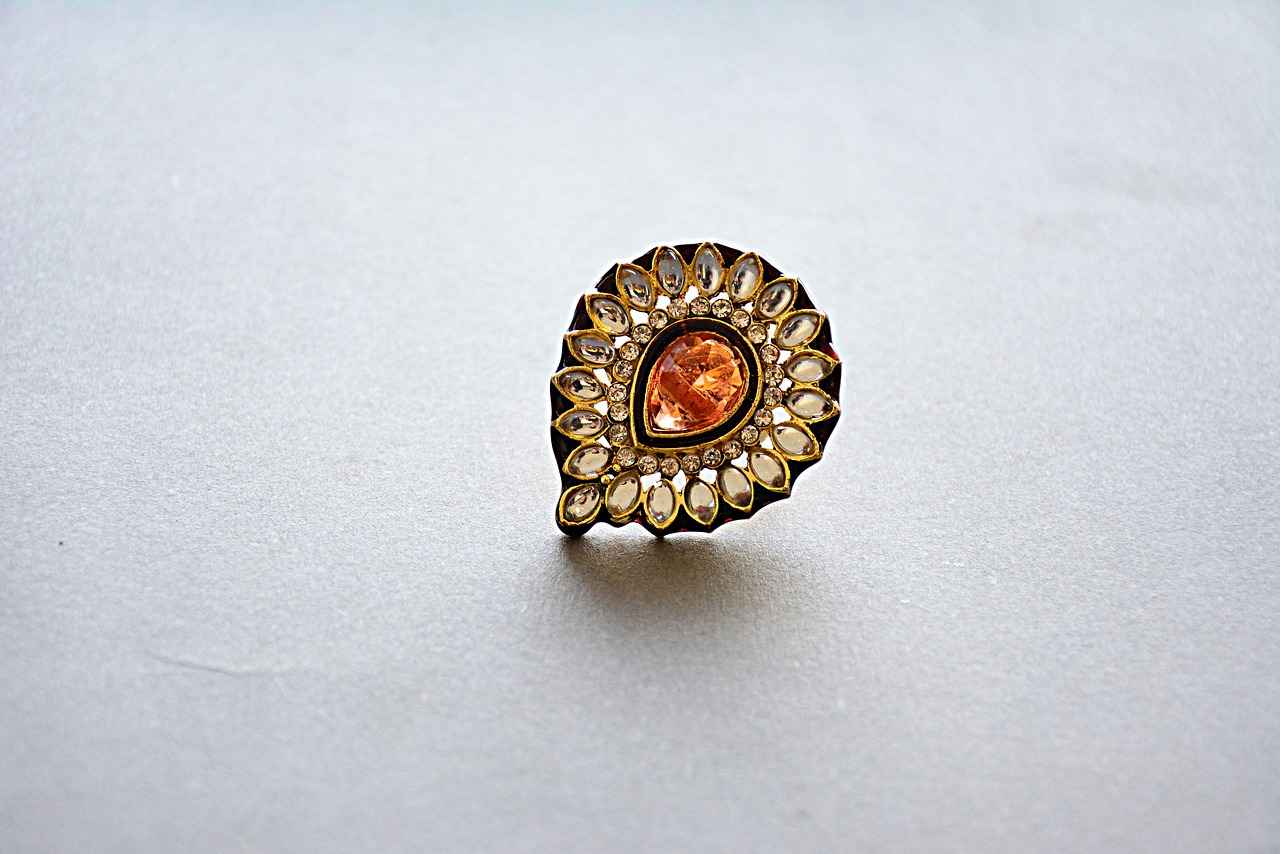
Tips for Everyday Jewelry Wearers
Jewelry is not just an accessory; it often holds sentimental value and represents personal style. For those who wear jewelry daily, it is essential to adopt specific habits that can help prevent tarnishing. Here are some practical tips to incorporate into your routine for better jewelry care.
Regular maintenance of your jewelry not only preserves its aesthetic appeal but also extends its lifespan. Understanding how to care for your pieces can save you time and money in the long run.
Everyday products, such as lotions, perfumes, and cleaning agents, can contain chemicals that cause tarnishing. To protect your jewelry:
- Apply products before wearing jewelry: Allow lotions and perfumes to dry completely before putting on your pieces.
- Remove jewelry when cleaning: Chemicals from household cleaners can lead to tarnishing, so it’s best to take off your jewelry during these tasks.
Regularly inspecting your jewelry can help catch tarnishing early. Here’s how to maintain your pieces:
- Check for signs of wear: Look for discoloration or dullness, which may indicate tarnishing.
- Clean your jewelry: Use a soft cloth to wipe your pieces after each wear to remove oils and dirt.
How you store your jewelry can significantly affect its longevity. Follow these tips to minimize exposure to elements that cause tarnishing:
- Use individual pouches: Store each piece in its own anti-tarnish pouch to prevent scratching and exposure to air.
- Avoid humid environments: Keep your jewelry in a dry place, as moisture can accelerate tarnishing.
Not all jewelry is created equal when it comes to daily wear. Consider these factors:
- Opt for durable materials: Stainless steel and titanium are less prone to tarnishing compared to silver.
- Limit exposure to water: Remove jewelry before swimming or showering to prevent tarnishing from chlorine or saltwater.
Applying protective coatings can be an effective method to prevent tarnish. Consider these options:
- Clear nail polish: A thin layer can act as a barrier against tarnishing agents. Apply carefully to avoid visible residue.
- Commercial anti-tarnish sprays: These products are designed specifically for jewelry and can provide a protective layer.
Sometimes, despite your best efforts, jewelry may require professional cleaning. Look for signs of severe tarnishing, such as:
- Dark spots or discoloration: These may indicate that tarnishing has progressed beyond simple cleaning.
- Loss of luster: If your jewelry no longer shines as it should, it may be time for a professional touch.
By adopting these habits and practices, you can significantly reduce the risk of tarnishing and keep your jewelry looking beautiful for years to come. Remember, a little care goes a long way in preserving the shine and integrity of your cherished pieces.
Avoiding Exposure to Chemicals
Jewelry is not just an accessory; it often holds sentimental value and can be a significant investment. However, chemicals in everyday products can tarnish your beloved pieces, leading to dullness and discoloration. Understanding which substances to avoid and how to protect your jewelry during daily activities is crucial for maintaining its beauty.
The tarnishing of jewelry occurs due to chemical reactions between the metal and certain substances. Common culprits include:
- Household cleaners: Many cleaning products contain harsh chemicals that can react negatively with metals.
- Cosmetics: Lotions, perfumes, and hair products often contain ingredients that can lead to tarnishing.
- Chlorine: Swimming pools and hot tubs frequently use chlorine, which can be particularly damaging to metals like silver and gold.
To keep your jewelry in pristine condition, consider the following protective measures:
- Remove Jewelry Before Cleaning: Always take off your jewelry when using cleaning products to prevent direct contact with harmful chemicals.
- Apply Cosmetics First: Before putting on your jewelry, apply lotions and perfumes. Allow them to dry completely to minimize exposure.
- Avoid Chlorine: If you swim or use a hot tub, it’s best to remove your jewelry beforehand to avoid tarnishing.
Incorporating simple habits into your daily routine can significantly reduce the risk of tarnishing:
- Regular Cleaning: Gently clean your jewelry after wearing it to remove any residues from products that may cause tarnish.
- Store Properly: Keep your jewelry in a dry, cool place, preferably in anti-tarnish pouches or cloths to minimize exposure to air and moisture.
- Limit Wear During Activities: If you are engaging in activities that involve chemicals, such as cleaning or exercising, it’s wise to leave your jewelry off.
If you notice that your jewelry has started to tarnish, don’t panic. There are effective cleaning methods to restore its shine:
- Use a Soft Cloth: Gently buff tarnished areas with a soft, lint-free cloth to remove surface tarnish.
- Homemade Solutions: A mixture of baking soda and water can be an effective natural cleaner for silver jewelry.
- Professional Cleaning: For severe tarnishing, consider taking your jewelry to a professional jeweler for restoration.
By being mindful of the chemicals you encounter daily and adopting protective habits, you can significantly extend the life and beauty of your jewelry. Remember, prevention is key when it comes to maintaining the luster of your cherished pieces.
Regular Inspections and Maintenance
of your jewelry are essential practices that can significantly extend the life and beauty of your cherished pieces. By taking the time to perform simple checks, you can catch tarnishing and other issues early, ensuring that your jewelry remains in top condition.
Jewelry is often exposed to various elements that can lead to tarnishing, wear, and tear. Regular inspections allow you to identify potential problems such as loose stones, scratches, or tarnished areas before they escalate into more significant issues. By being proactive, you can maintain the integrity and appearance of your jewelry.
- Visual Inspection: Regularly examine your jewelry for any signs of tarnish, discoloration, or damage. Pay close attention to areas that may not be visible at first glance.
- Check for Loose Stones: Gently shake your jewelry to see if any stones feel loose. If you notice any movement, it’s best to consult a jeweler.
- Clean Your Jewelry: Use a soft cloth to wipe down your pieces after wearing them. This simple step can remove oils and dirt that contribute to tarnishing.
In addition to inspections, regular maintenance is crucial for keeping your jewelry looking its best. Here are a few effective practices:
- Professional Cleaning: Consider having your jewelry professionally cleaned at least once a year. Jewelers have the tools and expertise to clean your pieces without causing damage.
- Store Properly: When not in use, store your jewelry in a dry, cool place. Use anti-tarnish pouches or cloths to minimize exposure to air and moisture.
- Limit Exposure: Try to avoid wearing your jewelry while swimming, exercising, or using harsh chemicals. This can help prevent tarnishing and damage.
It’s advisable to inspect your jewelry at least once a month, especially for pieces you wear frequently. For special occasion items, consider checking them before and after each use. This frequency allows you to catch any issues early, preventing costly repairs or replacements.
While many maintenance tasks can be performed with simple household items, certain tools can enhance your inspection and cleaning process:
- Soft Cloth: Use a microfiber cloth for gentle cleaning.
- Jewelry Cleaning Solution: Invest in a non-abrasive cleaning solution specifically designed for jewelry.
- Magnifying Glass: A magnifying glass can help you spot tiny imperfections or tarnishing that may not be visible to the naked eye.
If you notice severe tarnishing, significant scratches, or loose stones during your inspections, it’s time to consult a professional jeweler. They can provide expert cleaning and repairs, ensuring your jewelry remains in excellent condition.
In summary, are vital for preserving the beauty and longevity of your jewelry. By incorporating these practices into your routine, you can enjoy your treasured pieces for many years to come.
Frequently Asked Questions
- What is tarnishing and what causes it?
Tarnishing is a chemical reaction that occurs when metals, like silver and gold, react with moisture and air. This can lead to a dull or discolored appearance over time. Factors such as humidity, exposure to chemicals, and the type of metal can all contribute to tarnishing.
- How can I store my jewelry to prevent tarnishing?
To keep your jewelry looking its best, store it in a cool, dry place. Use anti-tarnish pouches or cloths, and avoid keeping pieces in direct sunlight. Organizing your jewelry in separate compartments can also minimize scratching and tarnishing.
- Are there specific cleaning methods to prevent tarnish?
Absolutely! Regularly cleaning your jewelry with a soft cloth can help remove dirt and oils that contribute to tarnishing. For deeper cleaning, consider using a mild soap solution, but always check the manufacturer’s recommendations to avoid damaging your pieces.
- When should I seek professional help for my jewelry?
If you notice severe tarnishing or damage that you can’t fix at home, it might be time to consult a professional jeweler. They can provide specialized cleaning and restoration services to bring your jewelry back to its original shine.
- What types of jewelry are most prone to tarnishing?
Jewelry made from silver, copper, and certain types of gold-plated items are particularly susceptible to tarnishing. Understanding the materials can help you take better care of your pieces and keep them looking new.






